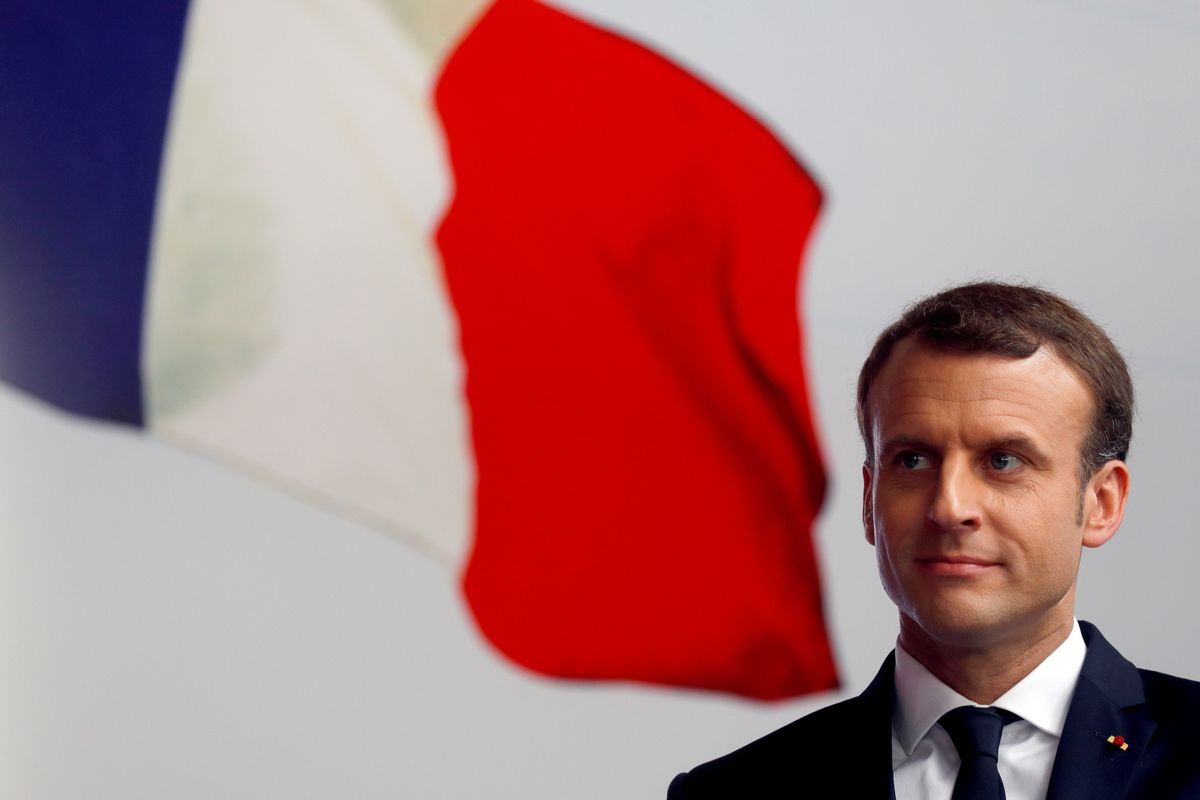In 2017, when Emmanuel Macron won 66 percent of the vote to become France's youngest-ever president, he was a relatively unknown figure in French politics. Macron, who spent most of his career as an investment banker, had never before run for office and had served only a brief stint as an advisor to former President Francois Hollande before becoming his economy minister.
An incumbent's first term in office usually defines his political identity and policy agenda. But three years into a five-year term, do we know Emmanuel Macron, what he stands for — or who he stands for — any more than we did in 2017?
A political outsider rises: When Macron thumped far-right rival Marine Le Pen to clinch the presidency in 2017, it was the first time in half a century that France would have a president from outside one of its two main political parties.
Macron, a stalwart of France's financial elite, created a new centrist political movement, La République En Marche (LREM), to appeal to those straddling the right and left. But in trying to win support from a politically diverse electorate, Macron failed to define his political agenda or his natural political base. (In the early days of his presidency, for example, Macron offered himself as a president for working-class people, but he also vowed to overhaul France's "welfare state," inviting critics to dub him "president of the rich." Macron also committed to an ambitious climate reform plan while simultaneously pushing a traditional pro-business agenda.)
Macron on shaky ground: Now, with preparation for re-election in 2022 firmly on his mind, Macron faces a series of challenges.
His LREM party took a thrashing in local elections last weekend when Green party candidates clinched decisive victories in Lyon, Bordeaux, and Strasbourg. It was a clear rebuke for a president who has tied his potential next term to a robust environmental and social agenda. The trouncing of LREM's candidate in Paris' mayoral race was particularly embarrassing for Macron, whose party failed to win any major victories.
This defeat follows a series of political crises. Macron's proposed green tax on fuel in December 2018 sparked months of protests and created the "Yellow Vest" movement that forced Macron to backtrack on his ambitious climate agenda. Earlier this year, cities were brought to a standstill again as thousands protested the government's proposed reform of France's pension scheme.
Last month, seven LREM members accused Macron of surrendering on climate reform and bowing to monied interests. They then defected from the party, costing Macron and the LREM their outright majority in France's Assemblée Nationale.
Europe's leader: Macron, a torchbearer for global liberalism, has also tried to position himself as Europe's leader as German Chancellor Angela Merkel prepares to hang up her boots. But, as Merkel has surely warned him, building a coherent EU position on complex issues is always challenging given the fractious nature of the 27-member bloc. This is not a role made for political success.
Soul searching: Macron recently said that he would "reinvent" his presidency by releasing a bold new environmental agenda, and will opt for a more "caring" final two years at the helm. The president also implied that he would reshuffle the government to appeal to disenfranchised left-wing voters. But critics on both the left and right charge that Macron's agenda has mostly been reactive and ad-hoc. In response to the LREM's poor performance over the weekend, for example, Macron hastily pledged 15 billion euros to move France towards a greener economy. He also expressed support for a referendum on changes to France's constitution to incorporate climate policy, though it's unclear whether parliament will support the plan.
Looking ahead: It's too early to say whether the Greens' local victories will earn them more power at the national level or who might emerge as Macron's main challenger. For now he remains the front runner. But recent events don't bode well for a president who is still a relative political newcomer, one who sees ongoing anti-racism protests and a pandemic-battered economy standing between him and his second-ever elections.



















